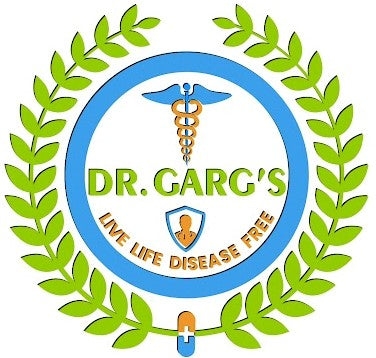Eczema Treatment
Overview of Eczema Treatment: Causes, Symptoms, Diagnosis, Homeopathic & Ayurvedic Treatment

Introduction:
Eczema, also known as atopic dermatitis, is a chronic inflammatory skin condition that affects millions of people worldwide. It is characterized by dry, itchy, and inflamed skin, which can lead to significant discomfort and impairment of the quality of life. In this article, we will provide an overview of eczema, including its causes, symptoms, and diagnosis. Additionally, we will explore the potential of homeopathic and Ayurvedic treatments for eczema.
Causes of Eczema:
The exact cause of eczema is not fully understood, but it is believed to involve a combination of genetic and environmental factors. People with eczema have a compromised skin barrier function, making their skin more susceptible to irritants and allergens. Triggers such as certain foods, environmental allergens, stress, irritants, and changes in temperature or humidity can exacerbate eczema symptoms.
Symptoms of Eczema:
Eczema can present with a variety of symptoms that may vary from person to person. Common symptoms include redness, itching, dryness, and the development of rough, scaly patches on the skin. The affected areas can become swollen, and in severe cases, blisters may form, which can lead to oozing and crusting. Eczema commonly appears on the face, hands, wrists, elbows, and behind the knees, but it can occur on any part of the body.
Diagnosis of Eczema:
Diagnosing eczema is usually done by a dermatologist based on clinical signs and symptoms. The doctor will examine the affected skin and inquire about the individual's medical history and any family history of eczema or other allergic conditions. In some cases, additional tests may be performed to identify or rule out specific allergens or to assess the severity of the condition.
Treatment Options for Eczema:
The treatment of eczema aims to alleviate symptoms, manage inflammation, and prevent flare-ups. Treatment plans may vary depending on the severity of the condition and the age of the individual. Common treatment options include:
1. Moisturizers:
Regular and frequent application of moisturizers helps hydrate the skin and maintain its barrier function. They provide relief from dryness and reduce the itching associated with eczema.
2. Topical Corticosteroids:
These anti-inflammatory creams or ointments are commonly prescribed to reduce inflammation and relieve itching. They come in varying strengths depending on the severity of the eczema and the location on the body.
3. Topical Calcineurin Inhibitors:
These medications help suppress the immune response and reduce inflammation. They are typically used for sensitive areas such as the face or areas where corticosteroids may be less effective or not recommended.
4. Antihistamines:
Oral antihistamines may be prescribed to help reduce itching and promote better sleep, especially during flare-ups.
5. Wet Wrap Therapy:
This technique involves applying a layer of moisturizer to the skin and covering it with wet bandages or clothing. It helps to moisturize the skin and enhance the absorption of topical medications.
Homeopathic Treatment for Eczema:
Homeopathy is a holistic system of medicine that focuses on individualized treatment based on the person's unique symptoms, constitution, and underlying causes. Homeopathic remedies for eczema aim to address the imbalances within the body and stimulate the body's self-healing processes. Commonly used homeopathic remedies for eczema include Graphites, Sulphur, Natrum muriaticum, and Arsenicum album. Dr. Garg is a qualified homeopathic practitioner, who can provide individualized treatment plans based on the specific needs of the person.
Ayurvedic Treatment for Eczema:
Ayurveda, a traditional system of medicine from India, offers a holistic approach to treating eczema. According to Ayurvedic principles, eczema is considered a result of imbalances in the body's doshas (energies). Ayurvedic treatments for eczema may include herbal remedies, dietary modifications, lifestyle changes, detoxification procedures, and stress management techniques. Ayurvedic herbs commonly used for eczema include Neem (Azadirachta indica), Turmeric (Curcuma longa), and Aloe Vera (Aloe barbadensis).
It is important to note that both homeopathic and Ayurvedic treatments for eczema should be sought under the guidance of Dr. Garg, who is qualified practitioners experienced in these systems of medicine. He can provide individualized treatment plans and monitor progress over time.
Conclusion
In conclusion, eczema is a chronic inflammatory skin condition that can cause significant discomfort and affect the quality of life. While conventional treatments play a crucial role in managing eczema, complementary approaches like homeopathy and Ayurveda may offer additional support. It is essential to work closely with Dr. Garg’s Clinic to get a personalized treatment plan that addresses individual needs and ensures comprehensive care for eczema. We have a team of qualified doctors and medical professionals who are committed to helping you in your journey to better health.
